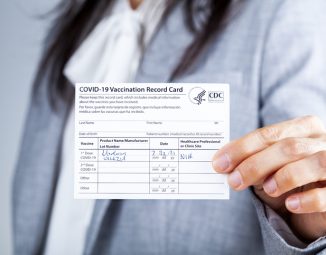COVID-19 and CARES Act: New Guidance Helps Employers Claiming Employee Retention Credit
Employers who do not receive forgivable loans under the Paycheck Protection Program (PPP) of the CARES Act will be interested to know that the IRS has provided new guidance to the Employee Retention Credit generally helpful to employers.
Credit Amount
In General. The Employee Retention Credit was designed to encourage businesses to keep employees on their payroll by providing a refundable tax credit equal to 50% of qualified wages (including certain health plan expenses), up to a maximum of $10,000 of wages per employee.
Distinction Between Large and Small Employers. Large employers (i.e., employers that averaged 100 or more full-time employees in 2019) can only claim the credit on wages (including certain health plan expenses) paid to employees who are not providing services to the employer. Smaller employers, on the other hand, can claim the credit for all wages (including certain health plan expenses) paid to its employees, whether or not the employees are providing services.
Eligibility for the Credit
In General. The credit is generally available to any employer (without regard to size) which fall into one of the following two categories:
- Suspension Rule. The employer’s business was (fully or partially) suspended by a government order due to COVID-19 during a calendar quarter.
- Gross Receipts Rule. The employer’s gross receipts are currently below 50% of the same quarter in 2019. Once the current gross receipts increase above 80% of the corresponding quarter in 2019, the employer can no longer qualify under this category, although it may still be able to qualify under the Suspension Rule.
State and Local Governments. State and local governments are not eligible for the credit.
Employers with PPP Loans. An employer who receives a PPP loan at any time cannot claim the credit – even if the PPP loan is later forgiven – unless the employer repays the PPP loan in its entirety by May 14th. The Treasury has pressured publicly traded companies and private employers with adequate sources of liquidity to repay PPP loans by this date.
Qualified Wages Includes Health Plan Expenses Paid To Furloughed Employees
The IRS recently clarified which health plan expenses count as qualified wages in calculating the Employee Retention Credit amount. The most important clarification is that health plan expenses paid by employers for furloughed employees who are not receiving a salary may count as qualified wages. This expansive reading of the law will help most employers claiming this credit. However, the IRS continues to point out that for larger employers, only the portion of health plan expenses allocable to the time that the employees are not providing services to the employer will treated as qualified wages.
More Good News: Potential Expansion of the Credit
Legislation expanding the value of Employee Retention Credits to employers is being promoted with bipartisan backing with hopes of being included in the next stimulus package. These lawmakers propose to increase the credit limit from the current $5,000 per employee to $12,000 per quarter for the remainder of the year. In addition, some limits would be removed in order to make it easier for employers to be eligible for the credit. Most importantly, the lawmakers are looking to allow employers who receive PPP loans to be eligible for the credit.
Of course, it is not clear when the next stimulus package will be passed. The president has indicated that he is in “no rush” to push for another stimulus package despite the April unemployment figures showing that the US has lost over 20 million jobs and that the unemployment rate has rocketed up to heights unseen since the Great Depression.
For additional information regarding the Employee Retention Credit or the CARES Act, contact Pauline W. Markey at pauline.markey@obermayer.com or (215) 665-3222 or Warren W. Ayres at warren.ayres@obermayer.com or (215) 665-615-3124.
The information contained in this publication should not be construed as legal or medical advice, is not a substitute for legal counsel or medical consultation, and should not be relied on as such.




